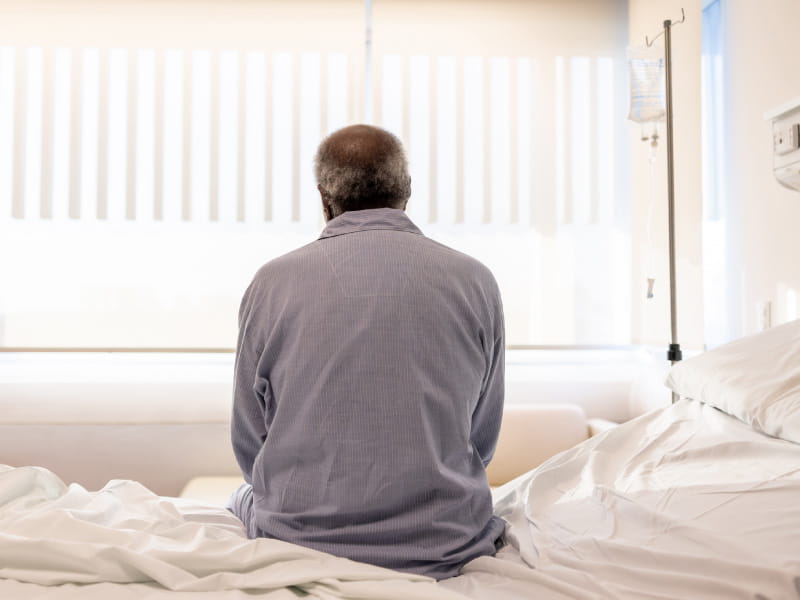Black veterans with PTSD may face a higher risk of rehospitalization after a stroke
By American Heart Association News

Black veterans with post-traumatic stress disorder were more likely to be rehospitalized after a stroke than white veterans and Black veterans without PTSD, a new study has found.
The study, which reviewed data from more than 93,000 veterans, was published Thursday in the American Heart Association journal Stroke.
Previous studies have shown that people with PTSD have a higher risk of heart disease and stroke and that they have strokes at younger ages than the general population. Studies also have shown that Black adults have a higher risk of rehospitalization after stroke. But this is one of the first studies to analyze how PTSD affects what happens after a stroke.
PTSD is a mental health disorder that affects people who have experienced a shocking, scary or dangerous event. It can lead to intense anxiety, flashbacks or other symptoms when events or situations trigger memories of the original trauma.
"We were expecting to see PTSD playing a role in all veterans, so we were surprised at the difference between African American and white veterans in both the impact of PTSD and other risk factors," Dr. Chen Lin, the study's senior author, said in a news release.
Using a Veterans Health Administration database, the researchers looked at what happened to veterans with PTSD after they had a stroke. "The main goal was to determine whether those with PTSD and stroke have different risks for stroke recurrence or hospital readmission and also to see whether race affected readmission rates," said Lin, a staff neurologist at the Birmingham Veterans Administration Medical Center and an associate professor of neurology at the University of Alabama at Birmingham.
The study used data from 93,651 veterans who had been hospitalized at any VA medical center in the U.S. for a first stroke of any type between 1999 and 2022. Their average age was slightly less than 69. Among those studied, 97% were male, about 22% were Black and 63% were white. They were followed for an average of five years.
Nearly 17,000 stroke patients – about 18% of the veterans – were readmitted to a VA hospital for any cause. Almost 14% of stroke patients were diagnosed with PTSD.
In their analysis, researchers looked at factors such as Type 2 diabetes, high blood pressure, high cholesterol and narrowing of the arteries outside of the heart. They also considered illicit drug or alcohol abuse, previous heart attack or a history of smoking.
Black veterans with PTSD were found to have a 10% greater risk of readmission compared to those without PTSD. White veterans with PTSD had a 5% greater risk of readmission than those without PTSD.
"In those with PTSD, there are worse outcomes in general among African American veterans than white veterans," Lin said.
Type 2 diabetes or illicit drug use were associated with a higher risk of rehospitalization after stroke among Black veterans, but the same risk factors were not associated with risk of rehospitalization for white veterans.
High cholesterol was significantly associated with higher risk of rehospitalization among white veterans, but not among Black veterans.
High blood pressure, a previous heart attack and narrowing of arteries outside of the heart increased the risk of post-stroke readmission in both Black and white veterans.
"In both the African American and white populations, there are important health conditions that can play a role in the risk of readmission after a stroke," Lin said. "Post-discharge care after stroke is always a challenge — people find it hard to get to the clinic, especially if they have disabilities limiting their walking and driving ability. However, there is certainly a role for more targeted care focused on the modifiable risk factors, such as Type 2 diabetes and illicit drug use."
The study's authors noted that their findings were limited by the information in the VA database. The results also may not be generalizable to female, Asian American or Native American veterans, who made up a small percentage of the dataset of veterans with stroke in this study.
Lin said the findings "highlight the important things we can do to improve post-stroke care, such as focusing on high-risk populations, reducing modifiable risk factors, achieving stricter Type 2 diabetes control and access for veterans who may need prescription medication treatment."




